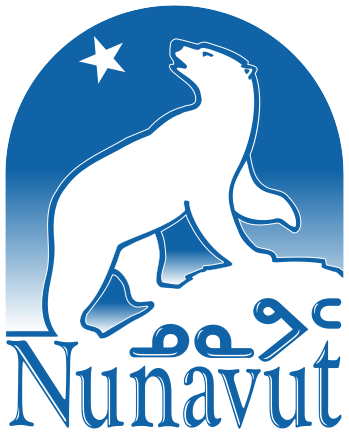FAQ
Ajuqharniaqqinga nalvaariami inikhamik inuugiami?
Amihut munarhit hivulliqpaami igluqaqtut kavamatkunni akikhilaaqhimajut gtamajaqaqtunik iglungini. Tatqiqhiunmi iglup aturninganut akiliqtuutit unngavaktauvaktut havaktip akiliuhiarutaanit. Apirilugit munaqhit havaktikhaqhiuqti iglukhanik hailijunik nunangani havaktiqangitunun tapkua piumajatit.
Qanuq qajurnaqpakpa ukiumi?
Pidjutigiplugu aktilanga avikturniata, aallatqiiktut hilaup qanuriniit. Ukiumi akhut — ukiuqtaqtumi nunallaat Ausuittuq naunaijautaa Ubluqtuhivia uunarnia -35ºC (-31ºF) uvalu naunaijautaa Taaqhivalirvia uunarnia 10ºC (50ºF). Taima tunungani aujami qajurnaitkaluakhuni, tamna uunarnia niglaqallangniarunaqhijuq tadjainaq. Amigaittuni nunani, aujami tikinniarungnarhijuq uunarnia 20°C (68°F) qulvahitqijaanikluunniit. Takulugit Hilahiutat Qaritaujakkuurutit qaritaujakkut qiqauninganik nunallaami ihumaliuliqtutit.
Qanuriniit tamaini ilangini aviktuqhimajumi hivuuganaqtut humi qajurnarningit uvalu anugikkut. Nunamingni uqaudjijut pidjutiqaqtut hilap qanuriniit maliktaujukhat naunaijattiarlugilu. Aujami tatqiqhiutini ihuaqtut amigaitunun hulidjutinun.
Kitut uqauhingit uqaqtauvat aviktuqhimajumi?
Nunavunmi, ilitarijaujut uqauhingit aviktuqhimajumi Inuit uqauhiit (Inuktitut Inuinnaqtunlu), Qablunaatitut Uiviititullu. Imaatut 75pusant Inuinnainit uqaqtut Inuktitut hivulliqpaami uqauhinga. Nunallaani Qurluqtuq (Kugluktuk) unalu Iqaluktuuttiaq (Iqaluktuuttiaq), uqauhinga taijaujuq Inuinnaqtun.
HQanuqtut iliharniaqqinga Inuktitut unalu Innuinnaqtun?
- Inuktitut Tusaalanga - http://www.tusaalanga.ca/
Kitkut piliihimat nunallaani?
RCMP tunivaktun paliihimat havaktakhainik tamainni nunallaani. Ilangit nunallaat piqaqtut Maligatigut havaktit kitut akhuurutiqaqtut nunamingni Maliganik.
Havaktarniaqik Uivivitun?
Munaqhivut atungittut tadja Uivitut havaamingni uqauhiq. Kihimi, Uiviititut ilitarijaujuq uqauhinga unalu ikajuutauniaqtuq
Havangniaqqinga Qablunaatut?
Nunavut piqaqtuq pingahunik ilitarijaujut uqauhingit – Inuit uqauhinga (akhuraaluk Inuktitut Inuinnaqtunlu), Qablunaatitut unalu Uiviititut. Taimaali, aanniaqtailinirmun kivgaqtuutit tunijaujut Qablunaatut numiktirijullu kivgaqtuqtut tunijaujut tahapkununga piumajunun kivgaqtuutinik Inuit Uqauhiitigut Uivitunluuniin.
Niuviqtaaqqik imirnik wine uvaluuniit beer nunamni?
Piqaqtun pingahunik katitirviqaqtunik nunalaangit Nunavunmi taima aulaligaangamik taaninik piqagumik imigianganiklu. Piqaqtuq nunat humi taangat pittailidjutiqaqtut, nunallaat humi kikliqaqtuq tahapkununga kitut angigutiqaqtut nunallaamin Taangaliqinikkut Illihaijit Katimajiit, uvalu maligaqangitut nunallaat humi taangat niuviqtaujaaqtut uvalu atuqtaujut pidjutiqaqtut iluaniitut haffumani Nunavunmi Taangaliqinikkut Munaqhidjutikkut Maligaq. Nunallaami tikkuaqtauniq pidjutaujuq nunallaami pijumajainnik.
Pilik kavamatkut-aulajumik wine-nik beer-niklu niuvirvik Iqalungni. Taangat inmikkut niuqarniq aquiqtuqtaujukhaq hapkunanga Nunavunmi Taangaliqinikkut Katimajiit uvaluuniin tunijaujut ataani laisip.
Imiqarviqaqqa Nunavunmi nunallaani?
Laisiqaqtut havagviit Iqalungni, Kangiqlinirmi, Iqaluktuuttiamilu.
Agjaqtaaqqik akhaluutiga akhaluutimnikluunniit?
Piqangituq apqutinik tapkua atadjutiqaqtut Nunavunmi nunallaanun hivuraani Kanatamun. Akhaluutit akhaluutitlu tujuutaujaaqtut tamavjainun nunallaanun uvani ukiumi umiakuuqtitinikkut. Amigainiqhat Inuit mikitqijani nunagijaujuni akhaluutiqagitut akhaluutiqagitunikluniit. Kihimi amigaitut inuit piqaqtut sikiituumik uvaluuniin haatat (tamangnikluuniin). Angitqijani katimavingni Iqalungni Kangiqlinirmilu amigaittun Inuit akhaluutiqaqtut akhaluutikkulluunniit.
Kajumiktumik Qaritaujaliqidjutikharnik?
Kajumiktumik Qaritaujakkuurutikkut havagutinik (tipaittuq) hailihimajuq tamainni nunallaani talvuuna nunallaami kivraqtuijinin.
Pitaaqqik piksasuurutikhanik qunngiarutikhanik cable TV-mik?
Tiiviikkut kivgaqtuutit piinarialgit tamaini nunallaani haffumuuna nunamingni kivgaqtuutinik tunihijut.
Qanuqtauq quviahuutit uvalu ulapqinikkut?
Angitqijaujuni nunallaani Iqalungni piksasuurviqaqtut, ulapqinikkut hulipkaidjutit, nunamingni hanajiujut, atuqtuujaqtut qun'ngiaqtitijut, aallangajut ilaujumajut ilaujut imaalu imirviit qun'ngiaqtitijut. Kihimi, amigaittut Nunavunmi nunaqaqtut ajuiqtut inmikkut qun'ngiaqtitiplutik niriqatigiikhutik, ulapqiplutik unnugaikpat imaalu aimavingmingni-ittunik inuuhirmingni hulipkaidjutikhanik.
Ikituni nunagijaujuni ulapqijutini takuukhauqataqtut nunagijaujumilu niriqatigiiktut atuqhimajut ajikutaqagituni hulijutini. Tamaita nunallaat piqaqtut ulapqivingnik igluqpangnik. Amigainiqhat ilaujut ulapqiviit iliharvingni haakirviqaqtutlu. Angitqijat nunallaat piqaqtut iqaijarviit aalallu igluqpait.
Hilami hulilukaaqtut ilaujut iqalukhiuqtut, anguniaqhutik uvalu pihuujaqhutik.
Maniqarviqarniaqqa humi nunamni?
Pingahut nunallaat Nunavunmi maniliqiviqaqtut nunallaani. CIBC havagviqaqtut Iqalungni Kangiqlinirmillu. Royal Bank havagviqaqtut Iqalungni, Kangiqlinirmi Iqaluktuutiamilu. Tamavjaita tamaita nunallaat piqaqtut ATMs uvani Northern Store uvaluuniin Co-op. Bank akiliqtuijut nunallaani pihimaittumik bank havagviujumik akiliqtuivaktut bank-kut hivajautikkut imaaluuniit qaritaujakkuurutit. Amigaitut Inuit maniqarviqaqtut havagvingmi hilataani Nunavut pipkaqhugit pihimajaangini hivitujumik-pihimajunik maniliqinikkut piqatigiingnirmik.
Piqaqa titiraqarvikkut kivgaqtuutinik?
Tamaita nunallaat piqaqtut titiraqarvikkut kivgaqtuutinik. Aimaviinut agjaqtaujuittut titiraqhangit. Ikaarningit kivgaqtuidjutait aadlatqingujut nunalaanin. Tamaita titiqiqivikkut agjaqtauvaktut tingmitikkut.
Taaqpiakpakpa ukiumi?
Pidjutiqarniaqtuq taarninga humi nunaqaruvit. Uvani Ukiuqtaqtumi, nunallaat Qausuittungmi piqaqtut 24 ikaangnirnik iniqtiqpiaqhimajut taaqtunik pingahunik tatqiqhiutinik hamanga Hikutirvia 6 hamunga Iidjirurvia 5. Imaalu, Kangiqlinirmi, pingahuujut ikaarnirnik ubluni taaqpiarninganilu ukiumi. Ilihaqtakhaq Nunavunmi, hapkua taaqtut ublut piqaqtut ilaliutihimajunik ikajuutinik. Tamna pinniqpiaktut ukiuqtaqtumi aqhalidjat, uvaluniit aqhaliat, qaumautivaktut qilangmik. Ilangit Inuit pulaaqpaktut hamani ukiumi tautukhugu una naunaituq.
Nutaqiqiviit hailivat?
Nutaqqiqivij hailijut amihuni nunallaani. Kihimi, utaqqiuqtaaqtut titiraqhimajut nutaqqiqivingmut kivgaqtuutit ilangani nunallaani. Apirilugu munaqhi havaktikhaqhiuqti naunaiqhittiarumaguvit.
Piqaqqat Uiviititut uqauhiit iliharvikhanik sikuurviini?
Iqaluit ilaupkaijut Uiviititut uqauhinga ilihainiq talvanga K-9. Ilinniarniq Uiviititut uqauhirmik ilihaqtitaungittut aallani Nunavut nunangini.
Nutaqqatka ilihariaqturniaqqik haniani havagvimni?
Amihut Nunavunmi nunangit piqaqtut sikuurvingnik iihaqtitijut K-12. Ikituni nunallaani iliharviit pihukhutik ungahiktilaaqarlutik tamainun kivgaqtuutinik, ilaujut munaqhitkut. Inugiaktuni nunallaani, iliharviit akhaluutiqaqtut buses ilihaqtut aijauvaktut aihimavingmingnit iliharvingmut agjaqtauplutiklu iliharvingmit aimavianut ubluq tamaat. Naunaiqhittiarumaguvit iliharvingnik nunangani ihumagijangnik apiridjavat munaqhit havaktiuniaqti tunijaangat nunangani iliharviit hivajautainik naunaitkutainik.
Aipparija/aippara ihariahuktuq havaakhamink. Tamna ajuqhautauniaqqa?
Hailijut havaakhangit aallatqiiktut amigaitilangit pidjutigiplugu aktilangat nunangani. Angitqijat nunallaat piqaqtut amigaitunik havaakhanik, pijakhaqaqtut amigaitunik aalakiinik ajuiqhautinik. Havaakhat ilihaijit, tamaita aanniaqtailinikkut ajuittiaqhimajut uvalu hananikkut Inuit piinarialgit. Takulugit Kavamatkut Nunavunmi tadja havaakhatigut havaktuqangitut uvaluuniin aalat nuititauhimajut havaat imaa naqilugu atadjutait ataani.
Nuitiqtitauvat Nunavunmi Munaqhit havaangit havagaanginaqtut?
Nunavut angmaqtut havagaanginaqtut uvalu himmautaulaktut munaqhit. Takupkaqtitauniq "hivituniqaqtuq" havaakhaq, una naunaiqtakhat ilaliutiniaqtuq uumani inmikkut havaamut naunaipkainiq. Qaffiuniit tatqiqhiutit uvaluuniin ukiut naunaijaqtauniaqtut.


